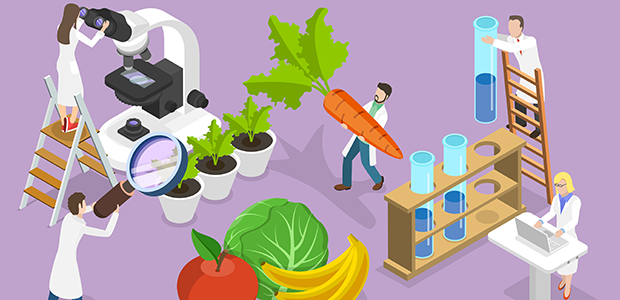
Agri-tech: meet the startups revolutionising food production
Future Planet Capital’s Guy Pengelley and Griff Williams comment on why the farming sector is ready for disruption and tip some of the most promising startups in the agri-tech sector.
This week, Arla launched a campaign, 'don’t cancel the cow' to address the trend of younger generations boycotting dairy due to environmental concerns. While these are justified, Arla is right to raise the wider points around the work the industry is doing to reduce this and the nutritional value that natural milk brings.
There is a lot of work being done by the industry in terms of upgrading existing infrastructure and investing in new technologies to reduce the climate impact of dairy farming, and this should be better communicated to allay consumer concerns.
The farming and agriculture industry has huge potential for disruption. Not only is agriculture responsible for a significant proportion of global emissions (between 15% to 25% depending on your source), but we face increasing challenges around food security due to a growing global population alongside reduction in available farmland due to land degradation and land constraints.
As a whole, the AgriFood Tech sector has seen large sums invested in the industry in recent years, with $18.9bn invested in upstream Ag technologies in 2021 across 1,846 deals. The amount invested has grown every year since 2016. In 2018, agri-tech really started taking off and we first saw more than $5bn invested in the sector.
Every stage of food production provides opportunities to innovate, from downstream alternatives to pesticides; automation and AI in harvesting; food packaging; eGrocery; and consumer food testing devices etc. If done right, innovation in the sector has the ability to increase sustainability in the food chain, increase animal welfare, bring economic benefit for farmers; reduce costs for consumers, and bring about food security for a growing global population.
Future Planet Capital is in the process of launching an AgriFood Innovation Fund alongside one of the UK’s AgriFood research institutions, Fera Sciences, which will look to invest in solutions to help solve these issues, specifically around emissions, regeneration, and novel foods, such as technologies to develop alternative proteins.
Our aim is to promote sustainable innovation and regenerative practises which cost-effectively support traditional farming as well as recognise the potential of novel food technologies.
We already have a few exciting agri-tech startups in our portfolio. The key in our selection is the ability for sustainable solutions which farmers can use without being economically worse off, thus increasing adoption and ensuring that consumers are able to choose more efficient and sustainable food without having to pay more. Here are four companies we are particularly excited about:
Roslin Technologies: a spinout of Edinburgh University’s world famous Roslin Institute (the Institute cloned Dolly the Sheep back in 1996). Roslin is advancing new, unique technologies within cultivated meat; alternative protein; and animal cell therapies. Roslin’s technology within alternative protein allows the rapid production of insects which convert low quality food waste into higher quality proteins, oil and fertiliser.
Insect protein also has the potential to be used as animal feed (animal feed is currently comprised of unsustainable fishmeal or crops grown utilising a large amount of farmland worldwide which could otherwise be used for human consumption). Farmers will benefit from having access to fertilisers and animal feed which is more sustainable and more cost effective.
NutriSan: NutriSan has developed a low-cost seaweed supplement which can straightforwardly be incorporated into existing livestock feed. When fed to dairy cows, NutriSan’s proprietary seaweed formulation not only increases milk protein content but also reduces methane emissions. Whilst there is a small additional cost to farmers for NutriSan’s supplement, this is offset by the economic gain through receiving a higher price for the milk.
There is a large environmental benefit of a reduction in methane emissions of between 10 to 20% additionally. Further, NutriSan is trialling a red seaweed product which has the ability to reduce dairy cow methane emissions by 90%.
Tropic Biosciences: Tropic Biosciences is planning to use their in-house genome editing technology to develop new commercial varieties of tropical crops (initially coffee and banana). These multi-billion-dollar commodities play a critical role in supporting global nutrition and trade income but face intensifying supply-chain and disease challenges.
Tropic aim to solve these challenges through non-GMO genetic innovation, which will help farmers by increasing their production as they see a reduction in crop failure.
Levidian: Levidian’s technology removes damaging methane from the environment. The company has patented plasma technology which “cracks” or converts methane (CH4), at source of emissions, into its constituent parts of hydrogen and carbon, locking the carbon into high-quality green graphene. Both hydrogen and graphene are valuable bi-products: hydrogen can be used as a clean energy source and graphene is a “wonder” material able to be used in a variety of applications to extend product lifecycles and enhance performance.

